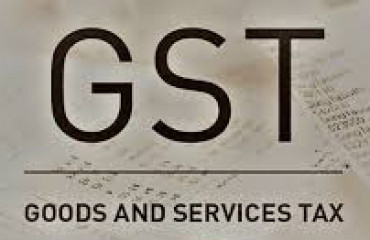
Central and state governments will now focus on efforts to widen the Goods and Services Tax (GST) base, finance minister Nirmala Sitharaman said on Saturday, indicating that this would be a key strategy in maintaining revenue collections at a robust level.
Central and state governments will now focus on efforts to widen the Goods and Services Tax (GST) base, finance minister Nirmala Sitharaman said on Saturday, indicating that this would be a key strategy in maintaining revenue collections at a robust level.
In response to a question on maintaining revenue buoyancy in the wake of normalising economic growth rate, the minister said that many GST Council members feel the need for further widening the tax base. Sitharaman was speaking to reporters after a virtual meeting of the GST Council on Saturday. Widening the tax base implies adding more GST registered entities. At present there are 14 million GST registered entities.
The minister, who also chairs the Council, said that monthly GST revenue collection has been above ₹1.4 trillion in the recent past. The combined GST revenue receipts of the Centre and states remained above this level for nine consecutive months since March upto November, with collections in April shooting upto ₹1.68 trillion.
Sitharaman said that, not just her, but many members in the GST Council are now of the view that the tax base needs to be further widened, although this issue was not discussed at Saturday's Council meeting.
"We need revenue, we are getting it. We are trying to stabilise it at some number and all, that is there. Instead of I speculating on what that number would be which you can comfortably place your finger and say that is what is for sure going to be the average tax collection, I think there should now be—and most of us agree--we should at every level, attempt to widen the GST base. So, the focus will be on how much effort all of us are putting towards that so that the states plus the Centre put an effort consciously to widen the tax base," the minister explained.
The emphasis on widening the tax base comes at a time the Council is not able to pursue steps to rationalise certain tax rates and raise revenue receipts amid concerns around inflation. Besides, the economic growth rate, which saw a sharp double-digit growth of 13.5% in the first quarter of this fiscal while bouncing back from the pandemic, is expected to further normalise in the next quarter.
Central Board of Indirect Taxes and Customs (CBIC) Chairman Vivek Johri explained on the sidelines that widening the tax base could involve broadening the scope of data collection and matching data from different sources to identify those who ought to be in the tax base, but are not. "We are looking at use of more advanced data from other agencies," said Johri. Some states have volunteered to run certain pilot projects in this regard.
For example, data from power distribution company about commercial electricity connections could help in identifying businesses that have not registered under GST. Maharashtra, Gujarat and Madhya Pradesh have volunteered to do some pilot projects, Johri said. (ends)
